Collagen and healthy ageing: what’s the connection?
Beef Salad with Peaches
Bone Care
Bone Health Support
The skeletal system is the body’s central framework, consisting of bones and connective tissue. This structure of bones support and allow us to move and house the brain, heart and other organs. Bones also store vital minerals, such as calcium and phosphorous, which help keep our bones strong. As bones break down and rebuild every day, these minerals are released into the blood stream, supporting other processes in the body.
Bone Health Support Nutrients
- Vitamin D is a fat-soluble vitamin that is a necessary co-factor in the absorption of calcium and ongoing support for bone health maintenance.
- Vitamin K is a bioavailable vitamin that supports calcium absorption into bones.
- Calcium, the most abundant mineral in the body, which is vital to build and maintain bone health, as 99% of the body’s calcium is in the bones and teeth.
- Collagen Types 1 and 3 support the durability and flexibility of bones, joints, tendons and ligaments and is bovine or marine sourced. Type 2 makes up 85-90% of collagen in articular cartilage and is sourced from chicken sternum, providing building support for strong healthy bones and joint tissue.
- Silica supports the production of bone-building cells and natural collagen production in the body.
Bone Health Support Tips
- Eat loads of vegetables, particularly cruciferous ones like broccoli, cauliflower, cabbage and Brussel sprouts, as wells as green leafy ones like kale and okra. These contain minerals calcium and magnesium for bone care support.
- Eat other high Calcium foods throughout the day; yoghurt, soya beans (tofu and soya milk), tahini (sesame seeds), seaweed, organic unhomogenised milk, almonds and cashew nuts.
- Get plenty of Vitamin D and Vitamin K in your diet, as these vitamins act as additional support for healthy Calcium uptake by the bones.
- Perform strength training and weight-bearing exercises where possible. Exercise works on bones much like it works on muscles and helps to make them stronger
- Consider taking a collagen supplement or drinking bone broth, to further support bone health strength and support.
- Maintain a stable, healthy weight to take the added pressure and stress off joints and bones.
FAQ's
The health of your bones is increasingly important as you age. Older adults often have to manage their bone density with more care. There is a limited time that we can influence our peak bone mass and the best time to build bone density is during years of rapid growth, during our childhood. Both diet and getting the right nutrients into our body, determines how strong and healthy our bones are.
A number of factors can affect bone health. For example, the amount of calcium in your diet. A diet rich in Calcium contributes to bone density health, supporting healthy, strong bones as we age. We can significantly support our peak bone mass through; diet, supplementation and exercise.
Calcium is a crucial building block of bone tissue and Vitamin D helps the body absorb and process calcium. Vitamin D is important for keeping bones strong and research shows that people with healthy levels of Vitamin D result in healthy bones and joint tissue. Together, Calcium and Vitamin D are considered two of the most important nutrients for bone development, the cornerstone of healthy bone maintenance. Magnesium is a mineral that plays an important role too, in maintaining healthy bones, as it contributes to bone density. Other support nutrients include; Vitamin K, Boron, Silica and collagen.
Since bone is living tissue, it changes over time, in response to the forces placed upon it. This is called bone density and plays an important role in the health and strength of our whole skeletal system, particularly as we age. Exercise is important for building strong bones when we are younger, and it is essential for maintaining bone strength as we grow older.




